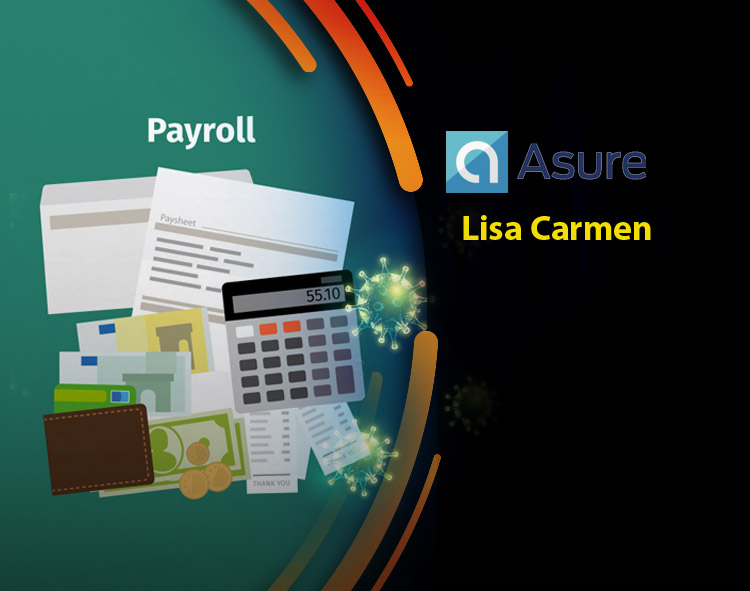Small business leaders have had to adapt quickly to the evolving business crisis caused by the COVID–19 pandemic. First, they had to protect employee safety by rapidly shifting to work from home and shuttering non-essential facilities. With that accomplished, business owners pivoted to conserving capital, cutting expenses, and leveraging government aid programs to bridge the gap and position for success.
Businesses with good payroll and tax compliance automation will more easily navigate new programs and benefit from them.
Ensure eligible SBA loans will be forgiven
An April 17 survey by the National Federation of Independent Business revealed roughly three-quarters of small businesses had applied for a Paycheck Protection Program (PPP) loan and roughly 40% for an Economic Injury Disaster Loan (EIDL).
These SBA programs provide a critical short-term cash infusion to help small businesses ride out shut-downs and see how well customer demand bounces back. Businesses must maintain accurate payroll recordkeeping to ensure the government-backed loans will be fully forgiven.
Read More: Top Cloud Players that are Redefining Global Banking
PPP loans are fully forgivable provided businesses use 75% of the funds for payroll and they maintain both headcount and wage levels. If businesses lay off employees or reduce salaries, the amount of forgiveness declines. Businesses may use up to 25% of PPP funds to pay for employee healthcare, utilities, rent/mortgage, and interest payments.
Most EIDL applicants applied for $10,000 emergency grants, and the SBA approved and disbursed funds to nearly 1.2 million businesses. EIDL emergency advances do not have to be repaid. These grants can be used for payroll, fixed debts, accounts payable and other bills. If a business receives both a PPP loan and EIDL emergency advance, it cannot use both funds for the same monthly expense. Again, precise recordkeeping will be essential for compliance.
Comply with the new paid sick-leave requirement
One of the first new laws passed by Congress to address COVID–19 was the Families First Coronavirus Response Act (FFCRA). It included a new, temporary rule by the Department of Labor requiring all businesses to provide employees with paid sick leave in certain situations where they or their family members are impacted by COVID–19. The temporary regulation is effective between April 2 and December 31, 2020. Three types of leave are included:
-
National Paid Leave for Employees provides up to 80 hours of paid leave if your employee is sick with COVID–19 or under a quarantine/isolation order.
-
National Paid Leave for Family provides paid leave for employees who are taking care of a family member impacted with COVID–19.
-
National Paid Leave FMLA covers employees that take leave under the FMLA to care for minor children whose school or daycare is closed.
Compliance requires additional time tracking and record keeping for busy small business owners. But there is a silver lining: The Federal government will provide businesses with a tax credit to offset expenses incurred when employees use this national paid sick leave.
Read More: What You Need To Know About SOC 2
Take advantage of tax deferral and tax credits
There are several tax credits and deferrals available to help small businesses cope with the economic impact of COVID–19. Business owners should seek advice from tax professionals to see which credits would most benefit their business.
FFCRA Paid Sick Leave: First, eligible employers may claim a fully refundable tax credit equal to 100% of the qualified sick leave wages paid while complying with the COVID–19 sick leave provisions of the FFCRA. Small businesses should track the amount they pay for employee health coverage during any time employees take the FFCRA paid sick leave. According to the IRS, the tax credit will include the amount of the eligible employer’s share of Medicare tax imposed on the qualified sick leave wages and any qualified health plan expenses allocable to those wages.
CARES Employee Retention Credit: The Coronavirus Aid, Relief and Security Act enables qualifying businesses to claim a tax credit for 50% of qualifying wages paid between March 13 and December 31, 2020, up to a maximum credit of $5,000 per employee. Businesses qualify if their operations were fully or partially suspended by government order or their quarterly gross receipts were below 50% of the comparable quarter in 2019. Employee Retention Credits can be claimed immediately and used to reduce payroll taxes sent to the IRS. If credits exceed taxes owed, businesses can request a direct refund. Businesses receiving a PPP loan cannot claim this credit, but it can be used in conjunction with credit for FFCRA paid sick leave.
Deferral of Employment Tax Deposits: The CARES Act allows employers to defer the deposit and payment of the employer’s share of Social Security taxes during the period between March 27 and December 31, 2020. The tax would still have to be paid, but employers can opt to pay 50% of the deferred amount by the end of 2021 and the remaining 50% by the end of 2022.
Read More: GlobalFintechSeries Interview with Sergey Savastiouk, Founder & CEO at Tickeron
Small business leaders using an automated payroll and tax compliance service will find their providers have become an invaluable partner in their efforts to leverage and benefit from COVID–19-related stimulus programs, tax credits, and leave requirements. Qualifying for loan forgiveness and tax credits will require impeccable records and accurate payroll calculations. Having the ability to download the necessary records and reports on demand will enable small business owners to take advantage of these programs without adding any significant personal burden around compliance or administration.
